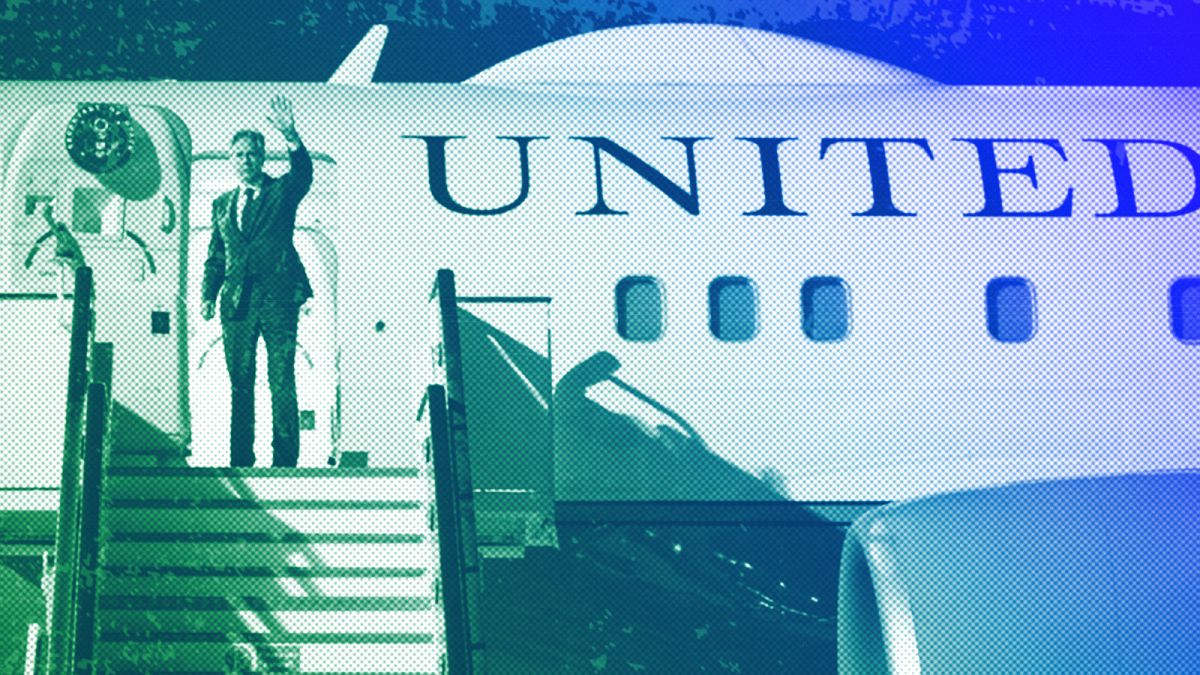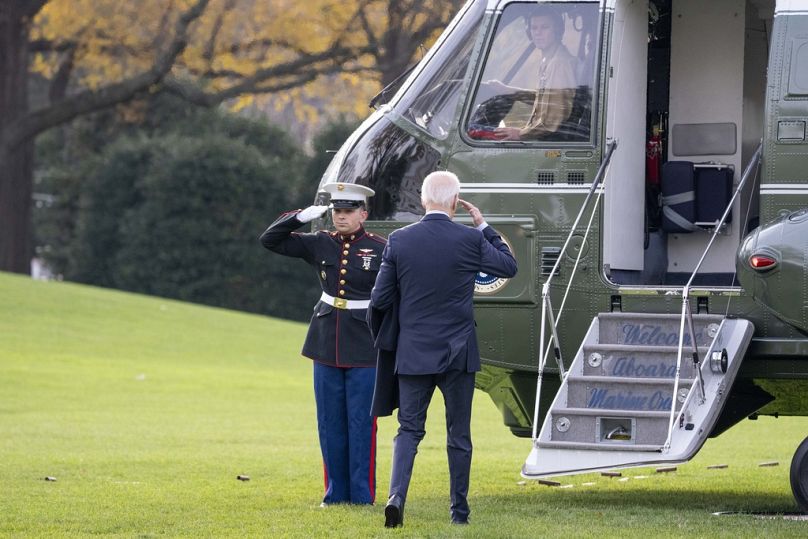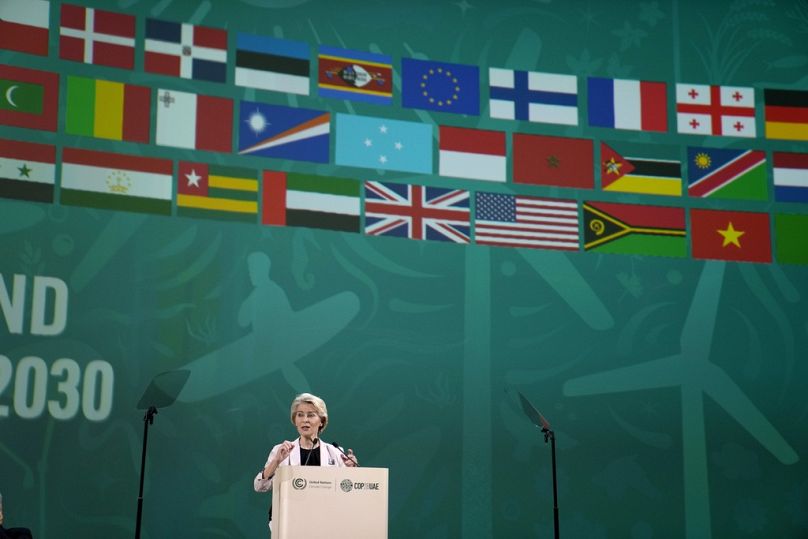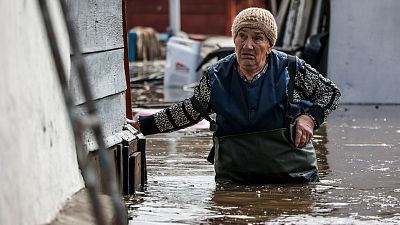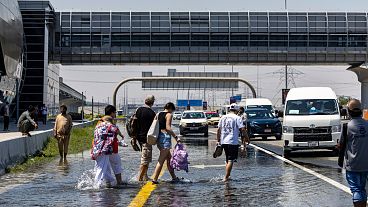Washington's decisions still largely signal the status quo to other nations in the Global North — and if the US is not willing to put its money where its mouth is when it comes to climate finance, then it’s very possible other wealthy nations could follow suit, Abdoulie Ceesay writes.
Last month's landmark agreement at COP28, under the guidance of Dr Sultan Al Jaber, to operationalise the Loss and Damage Fund was a momentous step forward. After all, the fund is a lifeline for developing countries ravaged by climate change.
However, the enthusiasm was dampened by the glaring inequity in financial commitments, particularly by the United States.
The contrast is stark and unsettling. The UAE and the UK stepped forward with significant pledges of $100 million (€92.9m) and $60m (€55.8m), respectively.
In stark contrast, the US, the world's largest economy and a major historical emitter, contributed a mere $24.5m (€22.8m) — an amount that can only be described as paltry and embarrassingly inadequate.
As an African leader, I must express profound disappointment and concern. Washington's contribution reflects a disturbing disregard for the scale of the crisis facing climate-vulnerable nations.
It is a failure to recognise the disproportionate burden these countries bear — a burden largely created by the industrialisation and prosperity of more affluent nations.
But this is not just a shortfall in funds; it's a glaring shortfall in moral leadership and global responsibility.
After all, Washington's decisions still largely signal the status quo to other nations in the Global North — and if the US is not willing to put its money where its mouth is when it comes to climate finance, then it’s very possible other wealthy nations could follow suit.
There is no other way to put it: America is failing Africa.
Unconscionable and gross dereliction of responsibility
African nations only account for 3.9% of global emissions but endure climate-induced crises around food insecurity, displacement, and natural disasters more frequently and fiercely than anywhere else in the world.
The $429m (€400m) allocated to this fund is a welcome starting point for Africa and other developing nations that bear the brunt of climate change.
Yet, given the relative size and wealth of developing nations, this is unconscionable and a gross dereliction of responsibility. Even Germany and the EU committed $100m (€92.9m) and $245m (€228m), respectively.
In the new realm of climate diplomacy, the US is falling tragically behind the UAE and other nations who are doing more both to transition away from fossil fuel dependency and invest in clean energy.
The UAE invested $23.8bn (€22.1bn) into Africa between 2016 and 2020, making it the second only to China. And already this COP, the UAE announced a $30bn (€27.9bn) climate finance fund today — separate from Loss and Damage — which will help reach its goal of tripling global investments in renewables by 2030.
On the other hand, US President Joe Biden is skipping COP28, and at home, he continues to fail to deliver the climate action he promised during his 2020 campaign.
For example, the Biden administration pledged to reach net zero by 2050 and stop drilling on federal land. Yet, since his election, he has failed to pass the emergency climate legislation to make the former possible — and as to the latter, he has approved more oil and gas drilling permits than his predecessor Donald Trump.
Europe could do a little more, too
It's clear that the path forward requires more than token gestures; it demands a deep, committed response commensurate with the magnitude of the crisis we face.
This means that the US, and other major economies, must not only acknowledge their pivotal role in this crisis but must act decisively and substantially to ensure a just transition. Their contributions should mirror their capacities and their historical responsibility.
For the EU, this was an opportunity to utilise its expertise and leadership in climate technologies and set a new standard for climate finance.
Although their contribution outsized the US, more — such as France and Kenya’s joint climate venture — could be done. Beyond making financial contributions, EU member states should be considering how policies aimed at reaching net zero by 2050 could negatively impact Africa.
For example, there have been calls at COP28 to exempt Africa from the EU’s planned carbon tax — which would implement tariffs on imports — as this could devastate African economies and put punitive measures above constructive ones.
Collective political willpower and financial muscle needed
Ultimately, Africa is at the vanguard in terms of the climate crisis — while we shoulder most of the burden, we are also home to many of the solutions.
For example, Africa has incredible wealth in untapped resources and great potential when it comes to renewable energy like solar.
We have all the tools we need; we just need the collective political willpower and the financial muscle to realise this potential.
In the end, the success of COP28 and the effectiveness of the Loss and Damage Fund hinge on genuine global solidarity and equitable action. It's time for the US to step up and demonstrate the leadership expected of a nation of its stature.
This is not just about finance; it's about justice, equity, and securing a sustainable future for all nations, irrespective of their size or wealth.
As we celebrate the achievements at COP28, let us also use this moment to catalyse a more profound and equitable global commitment to combatting climate change.
Abdoulie Ceesay is the Deputy Majority Leader of the National Assembly of The Gambia and represents the Gambian Government at COP28. As an MP, he serves on committees for education, trade, youth, human rights, and constitutional matters.
At Euronews, we believe all views matter. Contact us at view@euronews.com to send pitches or submissions and be part of the conversation.
